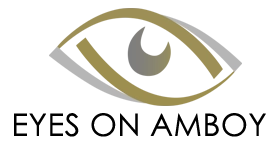Nearsightedness: Myopia Management in Staten Island NY

Myopia, more commonly known as nearsightedness, is a vision condition where close-up objects appear sharp, but distant objects look blurred without correction. This happens because light entering the eye doesn't land directly on the retina. Instead, it focuses in front of it, due to the eye being slightly too long or, in rarer cases, the cornea being too curved.
In most cases, myopia in Staten Island NY develops during childhood and adolescence as the eyeball continues to grow. As the eye elongates, distant vision becomes increasingly blurry. This is why children often need stronger glasses over time as they grow. Myopia typically stabilizes between ages 20 and 40, but early monitoring is important to reduce the risk of long-term eye health issues. Myopia often runs in families, making regular eye exams essential for those with a genetic predisposition.
How Nearsightedness Is Diagnosed in Staten Island NY
Diagnosing myopia involves a complete eye exam performed by an optometrist or ophthalmologist. This process is thorough, precise, and designed to determine both the degree of refractive error and the overall health of your eyes. Here's what to expect during a myopia evaluation:
- Medical and Vision History
Your exam begins with a detailed review of your symptoms, family history of nearsightedness, general health, and any medications that could affect your eyes. - Visual Acuity Testing
You’ll read from a standardized chart (Snellen chart) to measure how clearly you see at a distance. This step helps determine whether corrective lenses are necessary. - Refraction Evaluation
Using a device called a phoropter, your eye doctor will test different lenses in front of your eyes to identify which ones provide the clearest vision. This test determines your precise prescription. - Retinoscopy
For children or non-verbal patients, a retinoscopy may be performed. The doctor shines a light into the eye and observes the reflection off the retina to estimate the refractive error. - Autorefractor or Aberrometer Testing
Modern clinics use automated machines to give an initial measurement of how your eye focuses light. These results are refined through additional testing. - Comprehensive Eye Health Exam
A slit-lamp microscope is used to examine your eye structures in detail, checking for any abnormalities in the cornea, lens, or retina. - Pupil Dilation
Eye drops may be used to widen the pupils, allowing a better view of the retina and optic nerve for signs of underlying conditions. - Advanced Measurements
In certain cases, the doctor may perform corneal curvature measurements (keratometry) or corneal mapping (topography) to assess the eye’s shape and health.
These evaluations help eye care providers create an accurate diagnosis and guide the best course of action for correction and long-term care.
Recognizing Signs of Myopia in Children in Staten Island NY
Vision problems in children may not always be obvious. Many kids won’t report symptoms, making it vital for parents to watch for these behavioral clues:
- Frequent squinting when looking at distant objects
- Sitting too close to TVs or holding tablets and books very near to the face
- Difficulty seeing classroom boards or whiteboards
- Excessive blinking or eye rubbing
- Lack of interest in distance-based activities like sports or outdoor play
If your child shows any of these signs, it may be time for a pediatric eye exam to rule out or confirm myopia.
Why Controlling Myopia Progression Matters
Unchecked myopia can worsen rapidly, especially in children. Studies have shown that with no intervention, myopia can increase by 0.50 diopters or more each year. Higher degrees of nearsightedness are linked to serious eye conditions later in life, including:
- Cataracts
- Glaucoma
- Retinal detachment
- Myopic maculopathy
That’s why it’s critical to manage progression early, not just to reduce dependence on glasses but to protect long-term visual health.
Proven Optical Treatments to Slow Myopia Progression
Fortunately, there are several evidence-based optical treatments available that are designed to slow the elongation of the eye and reduce the rate of progression in children and teens.
Multifocal Contact Lenses
These lenses offer different zones for near and distant vision, helping to reduce eye strain during close-up tasks. By changing how peripheral light hits the retina, they can effectively slow myopic growth.Orthokeratology (Ortho-K)
Also known as corneal reshaping therapy, Ortho-K involves wearing special rigid lenses overnight that temporarily reshape the cornea. This non-surgical solution offers clear daytime vision and has been shown to slow myopia progression significantly.Multifocal Eyeglasses
Like their contact lens counterparts, these glasses provide multiple focal zones to help ease the strain on near vision. They are especially helpful for kids who spend long hours reading or using devices.Peripheral Defocus Lenses
These specially designed lenses alter the peripheral focus of light on the retina, helping to control the stimuli that cause the eye to elongate. They’ve shown impressive results in slowing progression.Low-Dose Atropine Drops
Although not a lens-based method, atropine drops are commonly prescribed alongside optical treatments. These medicated drops help relax the eye’s focusing ability and have been clinically proven to slow myopia progression.Combination Therapy
In many cases, doctors recommend a mix of treatments—like Ortho-K at night and atropine drops during the day—to achieve better control over eye growth.
These myopia control methods, when introduced early, can reduce progression by up to 60%. Choosing the right treatment depends on your child’s age, lifestyle, and specific prescription. Your optometrist will help develop a personalized strategy.
Protect Your Vision with Expert Myopia Management in Staten Island NY
Whether you or your child is experiencing the early signs of nearsightedness or looking to slow its progression, Eyes on Amboy offers customized myopia treatment plans designed to preserve vision and long-term eye health.
Schedule a comprehensive eye exam today to learn more about how we can help manage and control myopia.
OFFICE HOURS
Monday
10:00am - 6:00pm
Tuesday
10:00am - 6:00pm
Wednesday
10:00am - 6:00pm
Thursday
10:00am - 6:00pm
Friday
10:00am - 6:00pm
Saturday
10:00am - 6:00pm
Sunday
Closed
Eyes on Amboy
3161 Amboy Rd
Staten Island, NY 10306


